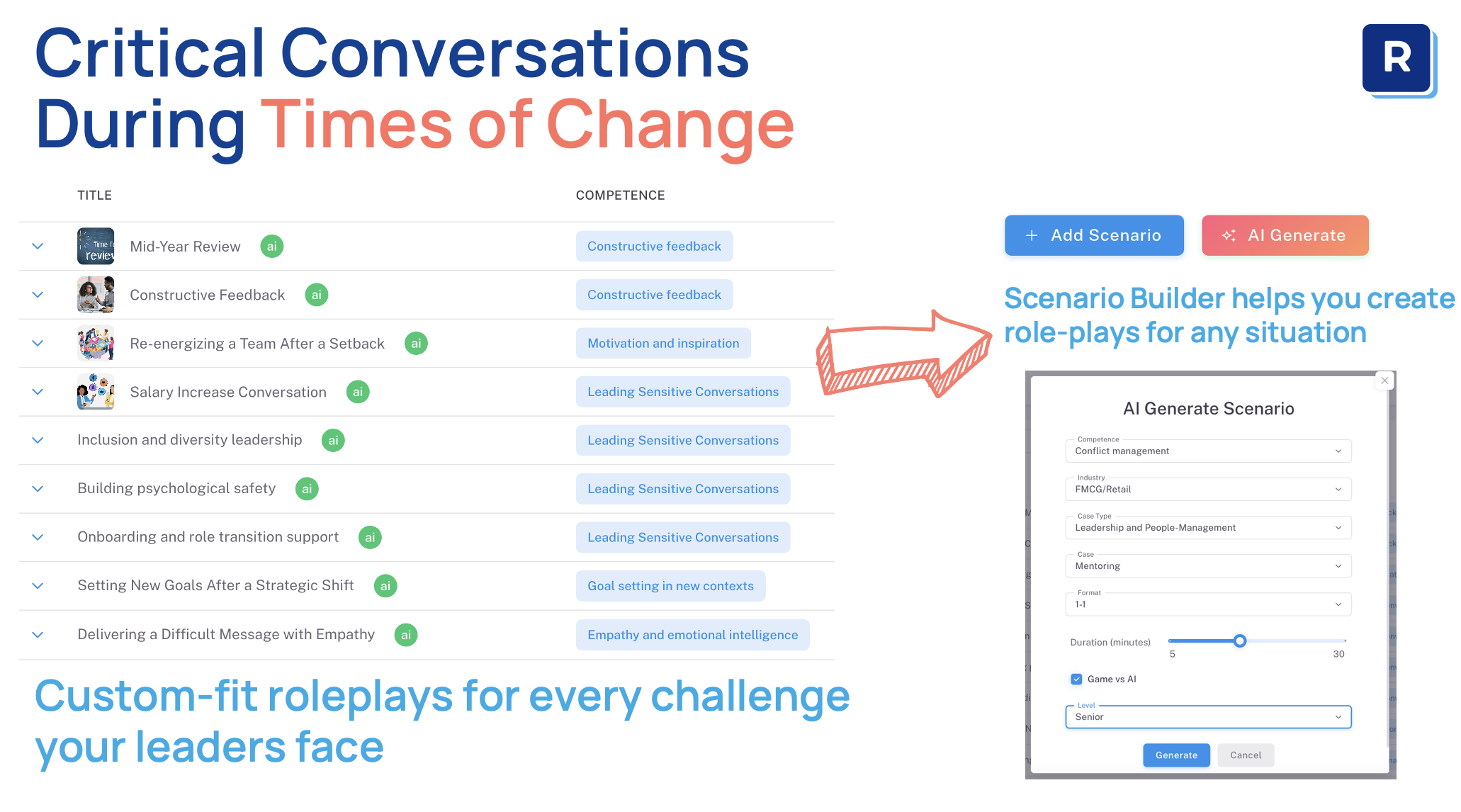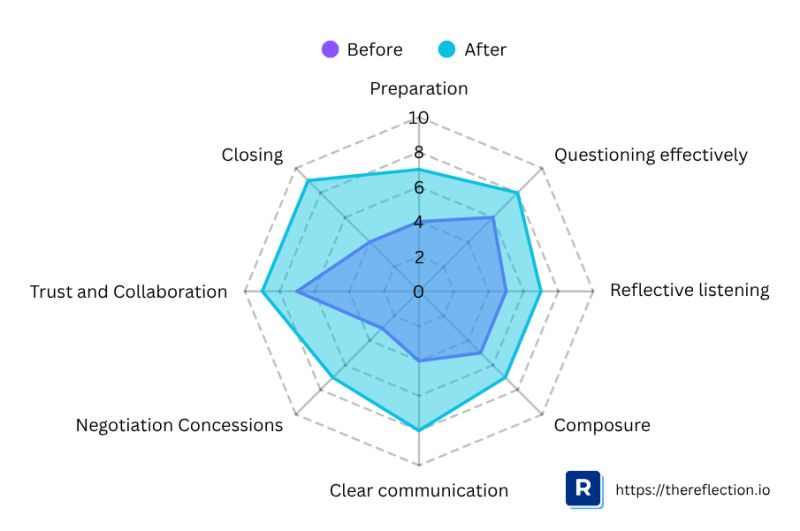Why Roleplays Matter More Than Ever
Leadership isn’t built in workshops or through slide decks. It’s forged in real conversations: giving feedback, resolving conflicts, coaching under pressure, navigating change.
Yet most leadership programs still focus on content transfer rather than experience.
That’s where roleplays come in. They allow leaders to practice difficult conversations in a safe space — building the habits, confidence, and emotional intelligence that no video or lecture can deliver.

From Theory to Everyday Habits
Traditional programs often stop at “awareness”: You know what good leadership looks like.
But roleplays go further: You practice doing it.
By simulating realistic workplace scenarios — whether it’s a tense budget conversation or a coaching dialogue with a struggling employee — leaders can test different approaches, receive feedback, and turn knowledge into repeatable behaviors.
The Unique Value of AI-Powered Roleplays
Until recently, scaling roleplays was nearly impossible. They required facilitators, small groups, and lots of time. Today, AI roleplays change that equation.
• Leaders can engage in practice anytime, anywhere.
• Feedback is immediate, consistent, and personalized.
• Managers and trainers can focus on higher-level coaching rather than repeating the basics.
The result: more practice with fewer resources — and a faster path from theory to performance.

What Leaders Can Practice Through AI Roleplays
Leadership isn’t about handling routine tasks. It’s about navigating the moments that truly test you — conversations where stakes are high, emotions are involved, and outcomes matter.
With AI roleplays, leaders can safely rehearse and refine skills in scenarios such as:
• Salary discussions — learning to balance transparency, fairness, and motivation when employees ask for raises.
• Inclusion and diversity conversations — practicing how to lead with empathy and clarity in sensitive discussions.
• Building psychological safety — creating an environment where people feel safe to speak up, even in challenging contexts.
• Onboarding and role transitions — supporting team members as they step into new roles or responsibilities.
• Delivering difficult messages — handling tough news with empathy and professionalism, without eroding trust.
These are the conversations that shape culture, retention, and performance — and they are exactly the ones most leaders never get to practice until it’s too late.
The Leadership Skills That Roleplays Strengthen
Roleplays are particularly effective at developing the skills that matter most in modern organizations:
• Decision-making under pressure – rehearsing tough choices before they happen.
• Empathy and emotional intelligence – practicing responses in sensitive situations.
• Conflict resolution – building confidence to address issues early and constructively.
• Coaching and feedback – learning to guide performance without damaging motivation.
These aren’t abstract qualities. They’re the everyday moments that determine whether a team thrives or stalls.
Measuring Impact
The ROI of roleplays is felt across engagement, retention, and performance. Leaders who practice critical conversations are better equipped to:
• Retain talent through empathetic, transparent communication.
• Navigate organizational change without losing momentum.
• Foster a culture where feedback and learning are continuous.
In other words: roleplays don’t just prepare leaders. They multiply the effectiveness of entire teams.
The Bottom Line
Leadership development must move beyond courses and slide decks. If you want stronger leaders, give them the one resource they rarely have: a place to practice.
Roleplays — especially when powered by AI — transform leadership from a theoretical skill set into a lived, repeatable habit. And that is how teams move to the next level.







